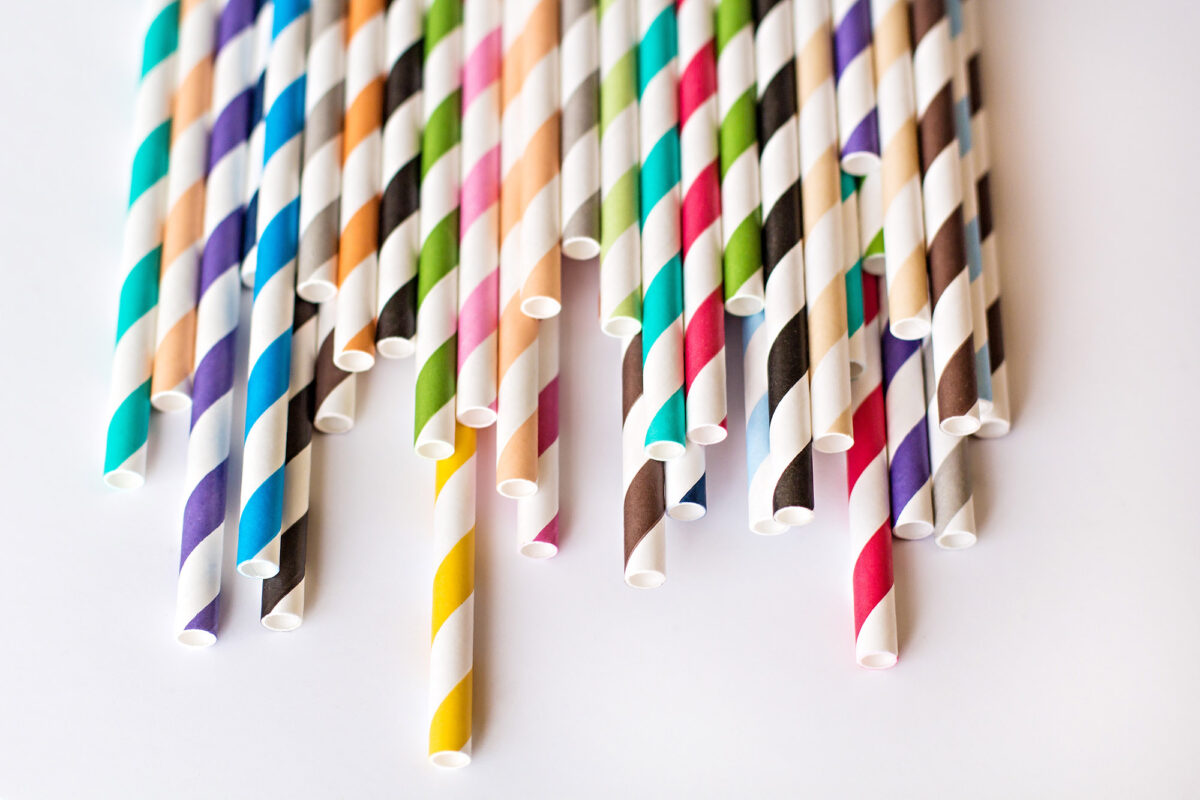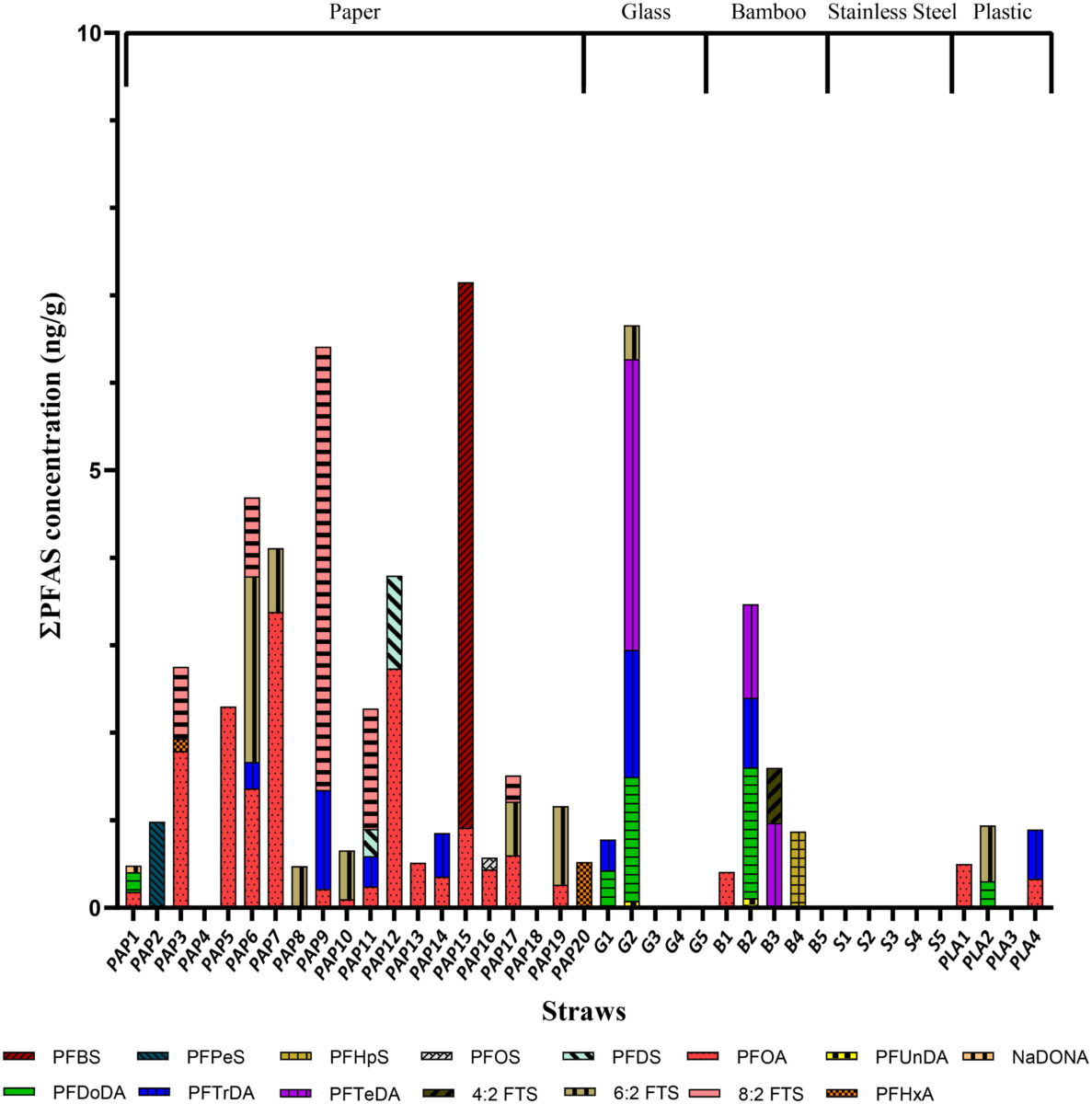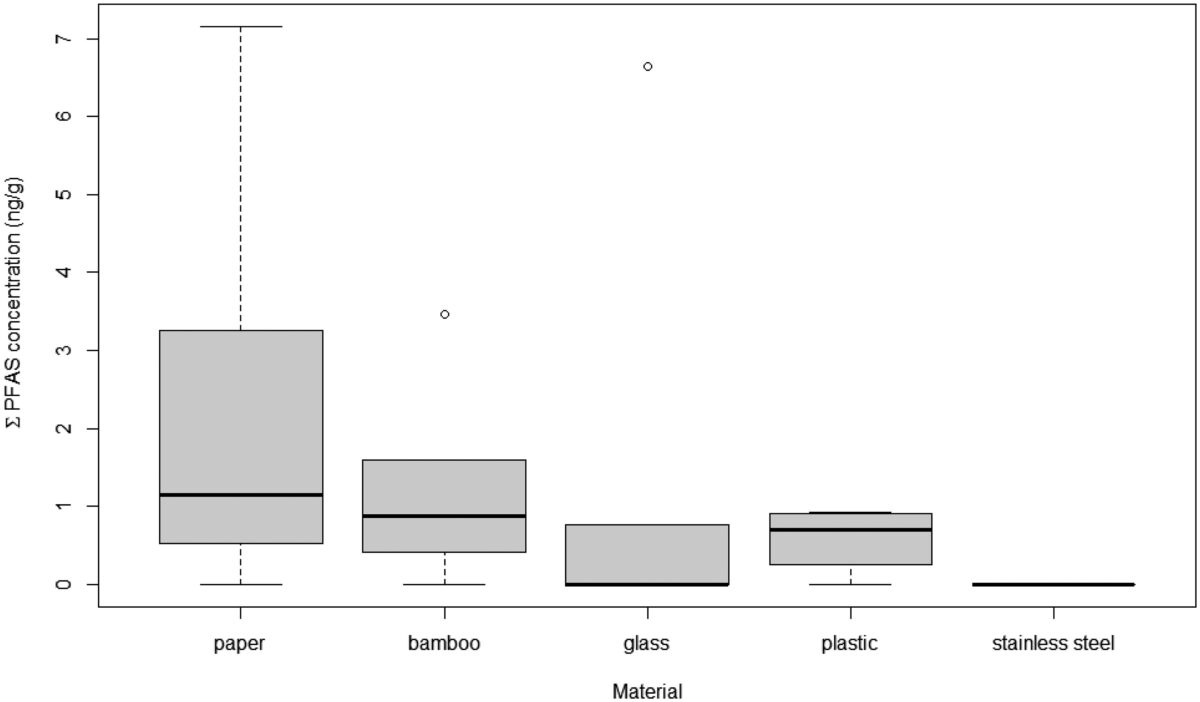Paper straws contribute to PFAS pollution issues

The University of Antwerp analyzed the presence of PFAS on thirty-nine brands of straws from different food contact materials available on the Belgian market
The popularity of alternative-material for food contact has increased among restaurants and brand owners who seek a replacement for plastic due to the banning policies.
Based on the available market supply, the University of Antwerp decided to analyze paper straws, glass straws, bamboo straws, stainless steel straws, and plastic straws for 29 different PFAS (a group of synthetic pollutants that are known to be potentially harmful to the environment, humans, and life in general).
PFAS in food contact materials
The results showed that PFAS were found to be present in almost all types of straws, but primarily in those made from plant-based materials:
- Paper straws have a concentration of up to 7.5 ng/g
- Bamboo straws contain up to 4.47 ng/g.
- Glass straws contain 1ng/g but one brand contains 6.65 ng/g.
- Plastic straws contain up to 0.924 ng/g.
- Stainless-steel straws contain no PFAS.

Courtesy of Food Additives & Contaminants: Part A. The sum of PFAS concentrations in ng/g, divided into the different PFAS components measured.

Courtesy of Food Additives & Contaminants: Part A. Average of the total PFAS concentrations (ng/g) in the different studied materials.
After these results one would ask, how PFAS contaminated the straws ?
Where do “Forever chemicals” come from?
It remains unclear which portion of the total PFAS concentration in plant-based food contact materials is part of the water repellency and which portion is background concentration from recycling or soil contamination.
Also, the presence of PFAS in some glass straws might be due to adsorption to silica minerals.
The most sustainable material
The main conclusions of this study are that plant-based straws marketed as eco-friendly alternatives are not more sustainable for the planet than plastics, because they may contribute to the current prominent PFAS pollution issues.
The most sustainable material seems to be stainless-steel straws, which:
- are reusable
- do not contain PFAS
- are 100% recyclable
Check the scientific article here
